Kopi Luwak or Luwak Coffee is often described as the most expensive coffee in the world, prized for it’s mellow taste. The first stage of coffee luwak coffee production is growing the coffee beans of course, but after this, the ripe coffee beans must be eaten and partially digested by a small mammal, a civet cat. These semi-digested beans are then collected, cleaned and roasted to make Kopi Luwak beans, to be ground and sold around the world. We saw this process at a spice farm in Bali Indonesia, but coffee is made this way in other parts of the world.
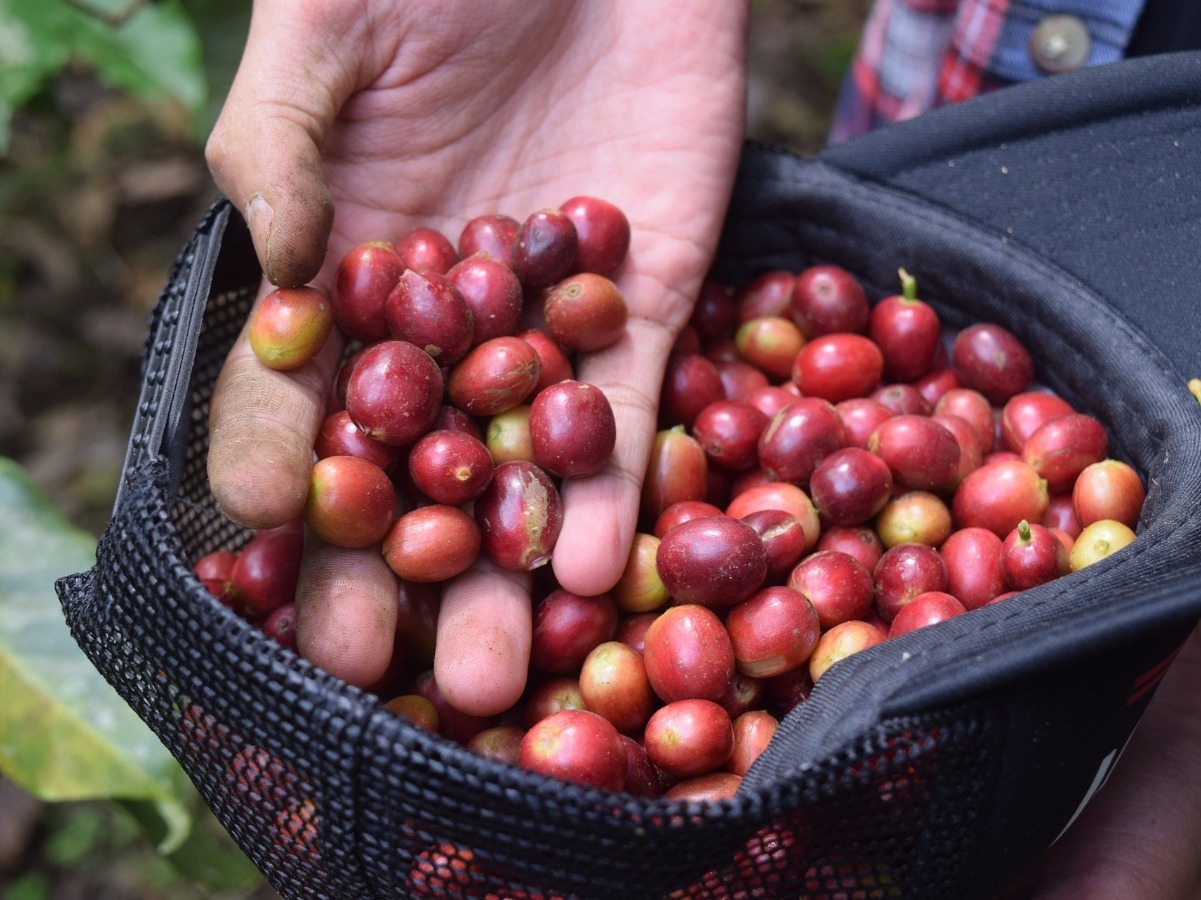
Kopi Luwak
Kopi luwak is highly controversial. An expensive, luxury, unnecessary coffee product made at the expense of captive animals. Ethical, or cruelty-free kopi luwak does exist, but for this to happen the beans have to be gathered in the wild, not collected from caged animals. The kopi luwak industry isn’t something we’d wish to support, but we stumbled upon a Kopi Luwak farm in Bali, quite by chance.
if you’d like to tour a coffee plantation in Bali, you can book a tour here! This tour includes a few other top attractions.
How Much Does Kopi Luwak Cost?
The price of Kopi Luwak varies depending on where you’re drinking or buying it, its quality, and its form. You can buy kopi luwak on Amazon (check out the astronomical price here). This brand claims to produce kopi luwak from wild animals and is cruelty-free. This particular brand of luwak coffee comes from Malaysia made from Arabica beans grown in Sumatra and Java.
At this price tag, this coffee is certainly exclusive and a luxury item.
Buy cruelty-free luwak coffee here.
Kopi Luwak Bali
The most expensive coffee in the world, coffee Kopi Luwak, starts with a civet in Bali or neighbouring islands. These little civets are hard at work processing coffee beans to make Kopi Luwak.
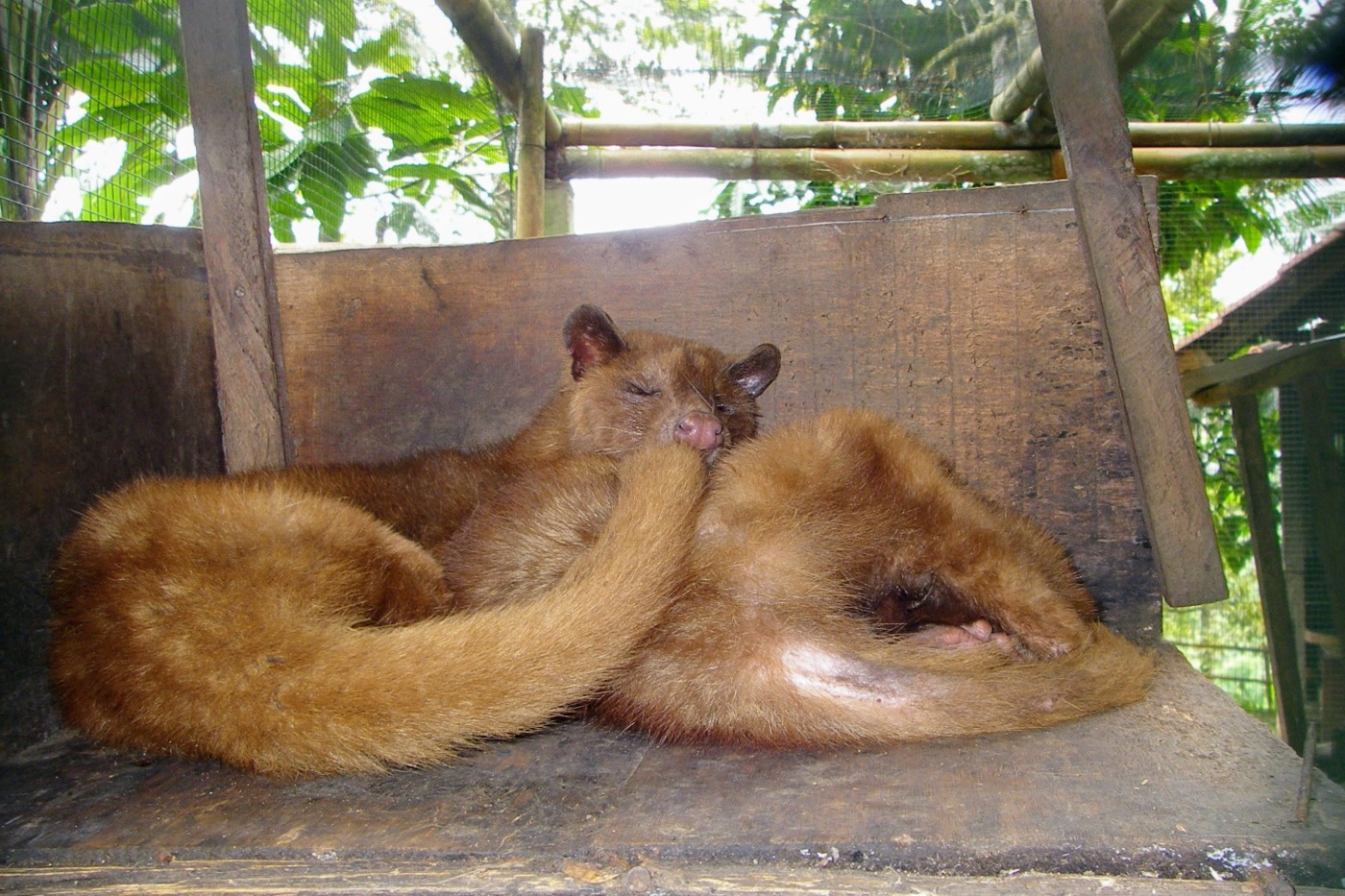
I’d never heard of coffee kopi luwak until the day we accidentally visited a spice garden in Bali, much less knew how it was produced, whoever would have thought that coffee kopi luwak needed some extreme processing to make it so smooth and expensive?
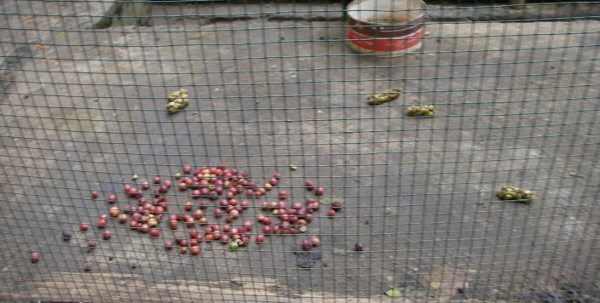
This may offend the more sensitive among you.
Kopi Luwak Bali, How It’s Made
At the Luwak civet coffee farm we stumbled across, the little furry civet cats eat the red coffee berries, digest the fruit and pass the indigestible beans in the normal way.
During the process digestive enzymes enter the beans, doing something to peptides and amino acids that makes the resulting coffee less bitter. The civet poop beans are washed, dried and brewed as normal
I tried the luwak coffee. I wasn’t hugely impressed, I certainly wouldn’t pay the hefty price tag even if civet abuse wasn’t involved, but it’s good coffee.
We visited a spice farm on Bali where they produced the Kopi Luwak, it’s also made on Sumatra, Java and Sulawesi. If you’re visiting Bali with children or have a particular interest in civet poop coffee, this would be one of my top ten things to do for the spice farm rather than the poor little civets.
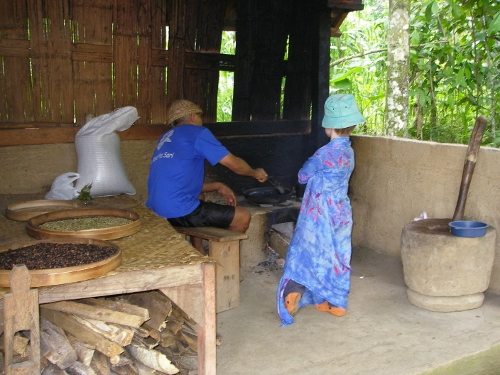
Despite the coffee not doing it for me, the spice farm was great, we travel with two small children so it’s all new and interesting to them, touching and smelling the spices, watching the coffee beans being hand-roasted and tasting a selection of teas and coffees. Lemongrass tea was a big hit with them, heavy on the sugar.
Check out our post on the best family hotels and resorts in Bali!
If you’re ever in Bali, check it out, but be aware that the industry, on a big scale, is very abusive to these little civets. There are links in the comments.
If you'd like to hire a car during your stay, use this car rental comparison tool to find the best deal!
We also suggest you take a look at this company to get a quote for all kinds of the more tricky adventure or extended travel insurance.
Try Stayz / VRBO for an alternative way to find rentals on homes/apartments/condos in any country!




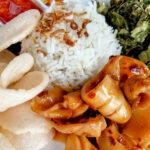



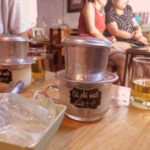
The coffee Kopi Luwak is from suffering civits living in cages stacked on top of one other. A tourist trap encouraging you to drink a civets excrement for money! THESE WILD ANIMALS ARE RAISED AND DIE IN CIVIT MILLS.
You are completely 100% correct. No way I would support this industry, ever.
actually Black Ivory coffee from Thailand is the most expensive coffee in the world. it goes through a fermentation process in an elephant.
I think that came about after this post was published. Yes I’ve heard of that. Pretty gross. The Kopi Luwak certainly wasn’t worth paying for and was terribly cruel.
lol its funny u writing about luwak.. but im so happy can read ur journey while in indonesia 🙂
where is this spice farm?
Im am on bali now and want to vissit one
I’m sorry I have no idea! Our driver took us there on the way back from the volcano to Ubud. I guess if you ask any of the drivers they’ll know of this one or a similar one, they were obviously on commission for taking people there. I would usually avoid spice farms, I’ve been to plenty before, always on drivers’ insistence, but this was great for the kids, it was their first time. There is always a lot of hard sell.
I’ve read about this before! I’m just glad I don’t drink coffee!
So, Kopi Luwak is mean to civets.
Another food to boycott!
Michele, thanks for your comment, you made me wonder how the Kopi Luwak is produced for the mass market. This farm only had two civet cats on show, I really hope civets aren’t being battery farmed for their poop in some coffee factory farm. I think I should give it a Google and stand up for civet rights!
I’ve been wanting to try Kopi Luwak here in Penang. The Peranaken Museum sells it in their cafe, but your Balinese Spice Farm looks much more interesting. For some reason, I had pictured people foraging in the jungle for the “processed” beans. I didn’t realize that they just kept a civet and collected it from the cage.